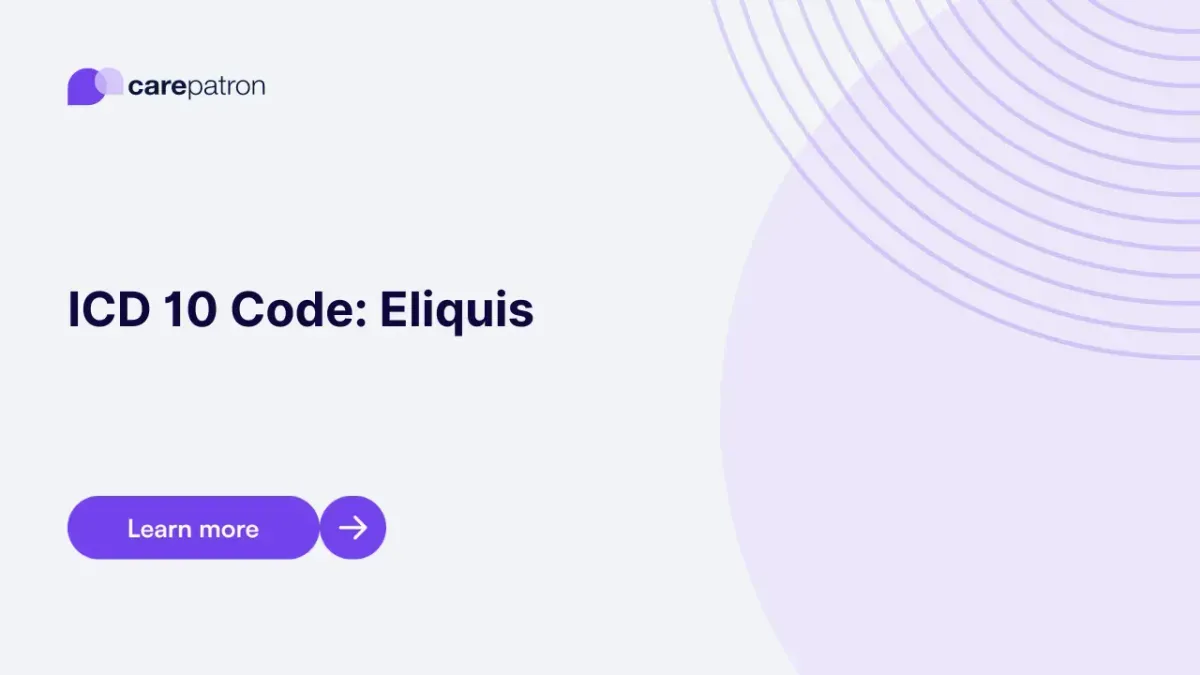
Eliquis ICD-10-CM Codes
Dive into the comprehensive guide on Eliquis ICD codes for 2023. Understand the codes, billability, and clinical significance of this anticoagulant medication.
Use Code
Commonly asked questions
If you miss a dose of Eliquis, take it as soon as you remember on the same day. Refrain from doubling up on doses to make up for a missed one.
No, stopping Eliquis or any anticoagulant suddenly can increase the risk of blood clots or stroke. Always consult your healthcare provider before making any changes to your medication regimen.
While Eliquis doesn't have specific food interactions like some other anticoagulants, it's essential to maintain a consistent diet and avoid excessive alcohol consumption. Always discuss any dietary concerns with your healthcare provider.
EHR and practice management software
Get started for free
*No credit card required
Free
$0/usd
Unlimited clients
Telehealth
1GB of storage
Client portal text
Automated billing and online payments
